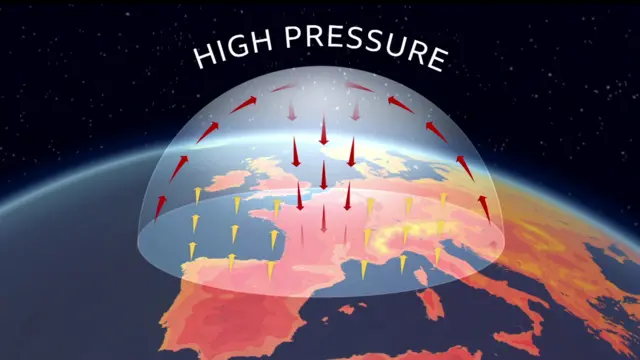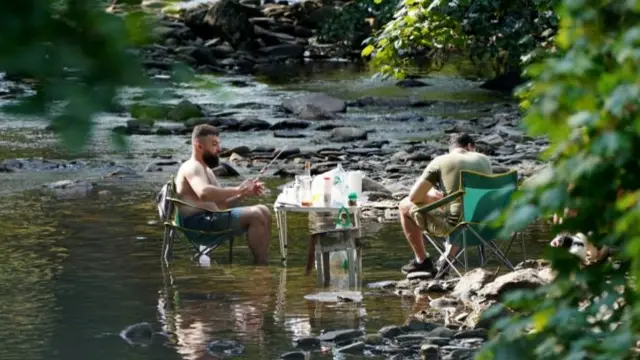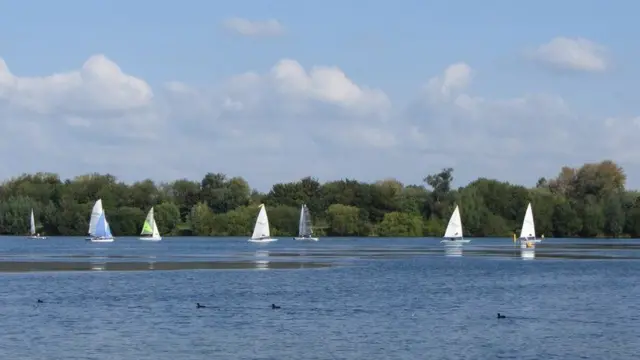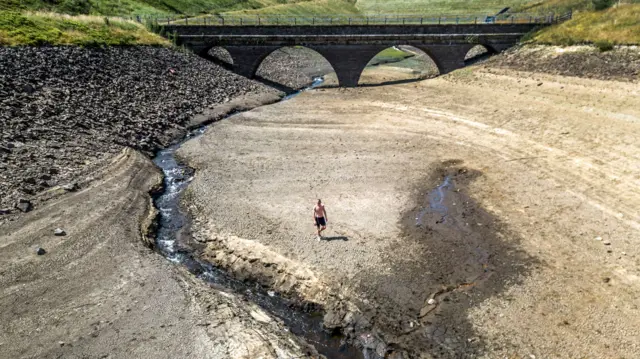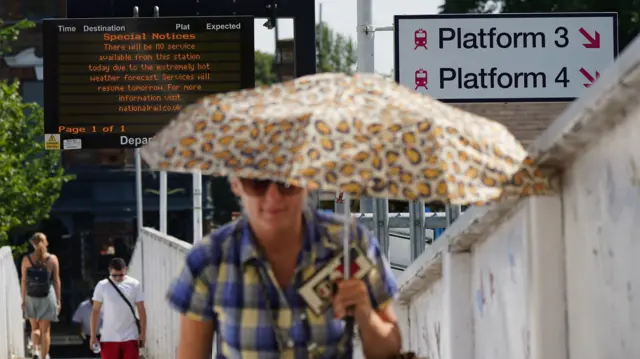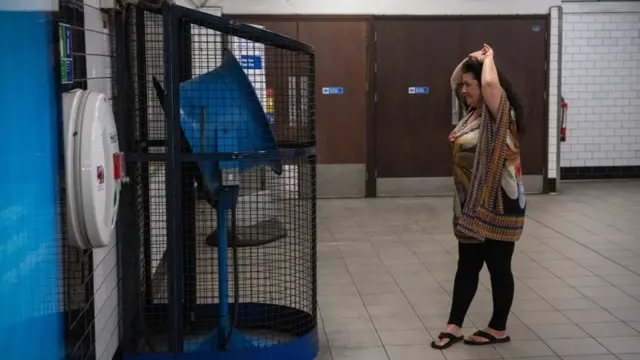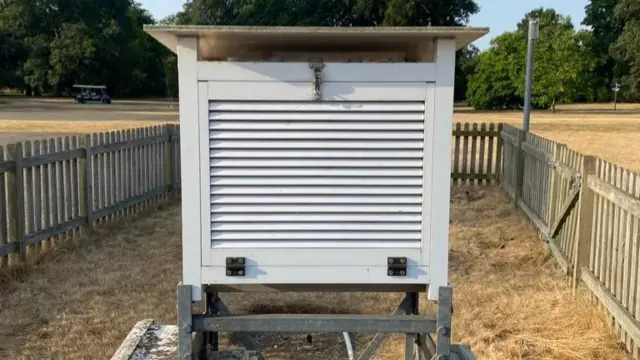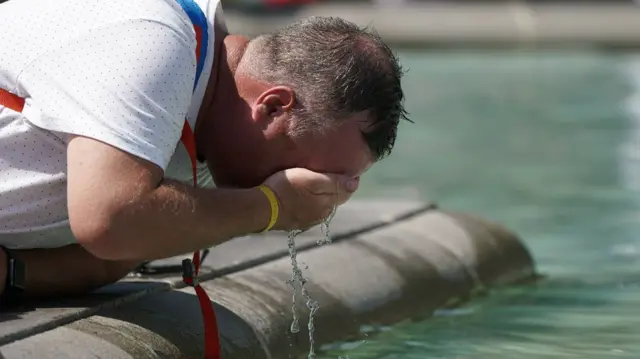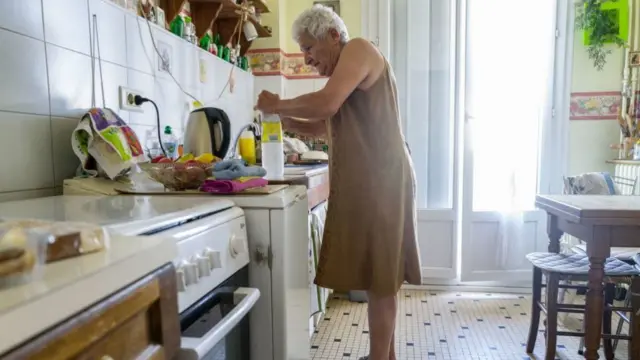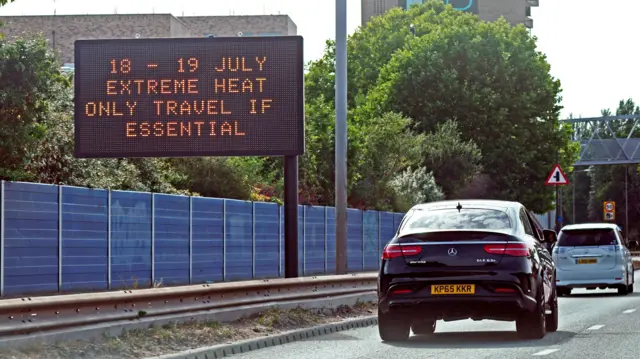Campaigners urge government to focus on climate changepublished at 15:11 BST 19 July 2022
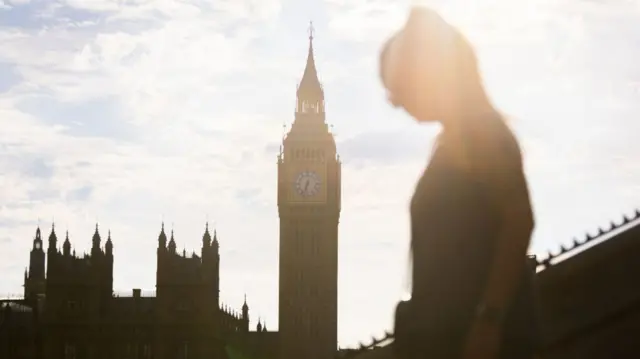 Image source, PA Media
Image source, PA MediaIn 2019, MPs passed a law that committed the UK to a legally binding target of net zero carbon emissions by 2050.
Countries globally have agreed to meet this target, which scientists say is necessary to slow global warming and reduce the risk of severe consequences from climate change.
With the current heatwave bringing the issue into sharp focus, campaign groups are urging candidates for the Tory leadership to prioritise the environment.
A new leader cannot ignore the "vital importance" of curbing the climate and nature crises, Mike Childs, head of science, policy and research at Friends of the Earth said.
“We need climate action that goes further, and faster, so that the next generation has a world left to inherit,” he said.
Earlier, Ed Miliband, Labour's shadow minister for climate change, said rival Tory candidates are "running away" from net zero commitments and they appear to be "rowing back" on the legal commitment made.
